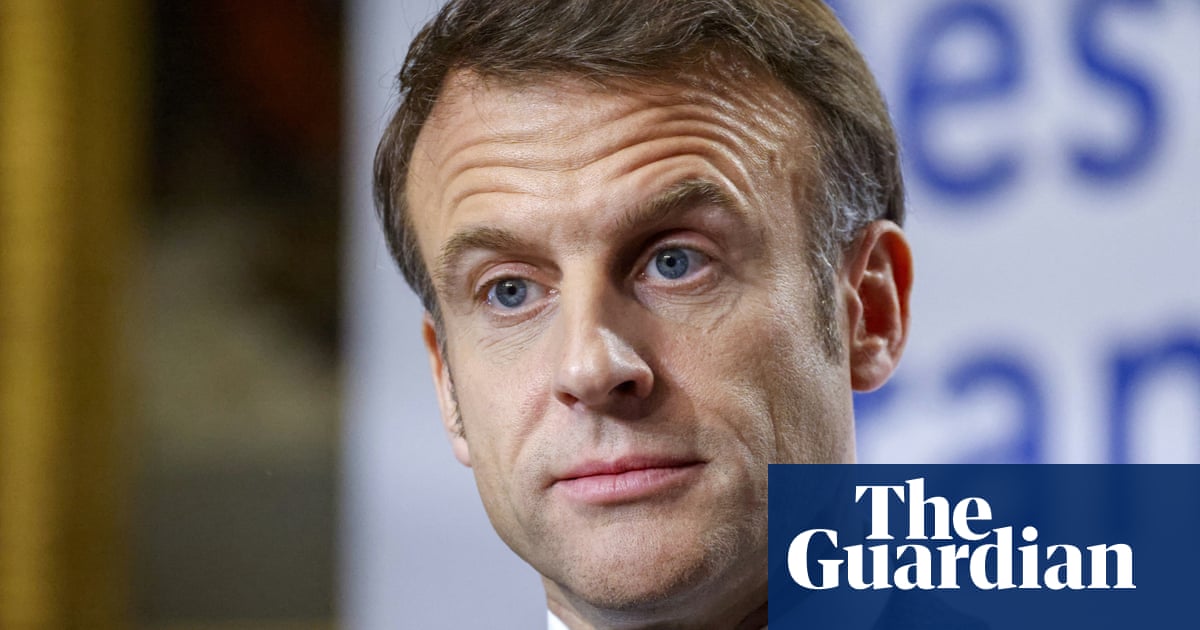
Emmanuel Macron has tilted the French government significantly to the right, bringing in key figures close to the former rightwing president Nicolas Sarkozy in an attempt to reinvigorate his second term and limit possible gains by the far right at the European elections.
“I don’t want managers, I want revolutionaries,” Macron told the first cabinet meeting of the new government led by Gabriel Attal, 34, France’s youngest ever prime minister. He called for “quick results”.
Eight of the small team of 14 key ministers have a background in Sarkozy’s party, Les Républicains, including the surprise appointment as culture minister of Rachida Dati, who served as Sarkozy’s justice minister from 2007 to 2009. Catherine Vautrin, a Sarkozy loyalist, who served in government 20 years ago under the rightwing Jacques Chirac, was given a large ministry covering health, labour and solidarity. When first tipped for Macron’s government in 2022, she was criticised by the left of Macron’s centrist party because she opposed the legalisation of same-sex marriage in France in 2013.
Two other long-serving politicians from the right, who were previously in government under Sarkozy, Gérald Darmanin at the interior ministry, and Bruno Le Maire at the finance ministry, kept their jobs.
Emmanuel Moulin, a former adviser to Sarkozy and former Treasury director, took the pivotal role of chief of staff to the new prime minister.
Attal himself has deliberately borrowed vocabulary from Sarkozy’s successful 2007 presidential campaign when he managed to hold back the far-right Jean-Marie Le Pen. Sarkozy’s catchphrase of appealing to French low and middle-income workers who “wake early” has been repeated by Attal, who also focused on Sarkozy’s topics of security, merit and authority. Attal told TF1 news that he would fulfil Macron’s promise to cut taxes for middle-income families.
On the left, the Socialist leader, Olivier Faure, said Macron’s idea of regeneration was to resurrect “Sarkozy’s dinosaurs”. The daily Libération carried the headline “The Sarko connection”. The Socialist lawmaker Boris Vallaud said that after a recent hardline immigration law, the new government simply confirmed Macron’s lean to the right.
“What I want is action, action, action” and “results, results, results,” Attal told TF1 television.
The new prime minister is confronted with significant challenges. Macron’s centrist grouping does not have an absolute majority in parliament, and faces difficulties in passing legislation. Attal is under pressure to fulfil Macron’s promise of full-employment in France in tricky economic circumstances. He will pursue Macron’s pro-business policies, aim to cut the deficit while also cutting taxes and overhauling social protections such as pensions and unemployment benefits.
The European elections on 9 June are seen as a midterm test for Macron, but Le Pen’s far-right National Rally is firmly ahead in the polls. Attal must also help smooth differences inside Macron’s centrist party. Figures on the left who had opposed the immigration law were not reappointed to government.
Stéphane Séjourné, 38 – a former member of the European parliament, secretary general of Macron’s Renaissance party and the president’s chief European election strategist – was appointed the youngest French foreign minister since the second world war. He said on Friday he would follow the roadmap set by Macron “of an independent France in a powerful Europe, able to make its voice heard in a new multilateral world”.
Séjourné, like Attal, is described at the Elysée as being part of the “Macron generation” of young centrists who began their political careers on the left.
The government was deliberately streamlined to a small number of ministers.
“It’s the smallest cabinet since world war two,” said a source in Macron’s entourage. The source defended the merging of key ministries, such as placing labour and solidarity in the same brief, because “it’s through work, that we get out of poverty”. Crucially, the sports minister will also take on the education brief, which the source said showed that this summer’s Olympic Games in Paris was “not just an event in itself but an education project for the nation”.
Dati took over the culture ministry saying: “Everyone knows I like to do battle, don’t be afraid.” She said she would fiercely defend the “French cultural exception” and reconnect young people and working-class people with culture, which they had turned away from.
Dati, who became the first Muslim woman to hold a major government post in 2007 under Sarkozy, has often talked about growing up on a low-income estate on the outskirts of the town of Chalons-sur-Saône, in Burgundy, among some who were illiterate.
The source in Macron’s entourage said: “Dati’s career illustrates the fight against inequality, the mission Emmanuel Macron has given her is to make culture accessible to those who don’t currently have access to it.”
Dati’s appointment continued to spark controversy. French media speculated that Dati, who has been mayor of Paris’s 7th arrondissement, may have done a deal with Macron to facilitate her running for mayor of the city in 2026. Emmanuel Grégoire, the Socialist deputy mayor of Paris, said it was “an indelible moral fault” that Dati had been appointed to government despite being under formal investigation for alleged corruption over consulting services to a subsidiary of Renault-Nissan. She has denied any wrongdoing.
Attal insisted that being under formal investigation was not problem, pointing to the “presumption of innocence”, and praised Dati as a “woman of commitment” who “all her life fought to obtain what she wanted”.
A series of junior ministers will be appointed within the next 10 days.
Laure Lavalette, of Le Pen’s far-right National Rally, said the new government amounted to a “reshuffle without change”.












